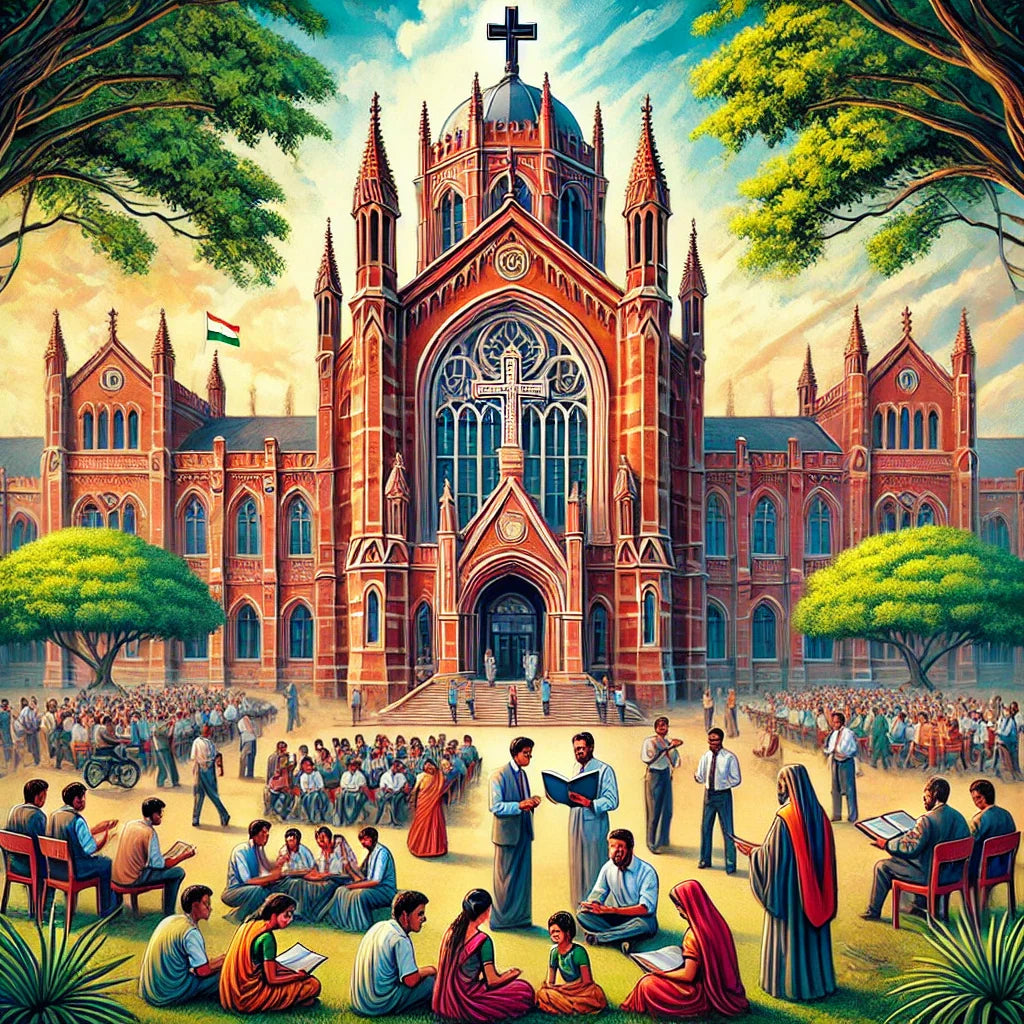
Catholic Higher Education Institutions
|
|
Time to read 4 min
|
|
Time to read 4 min
Catholic higher education institutions in India have long been recognized for their commitment to academic excellence, social responsibility, and faith-based education. Rooted in Christian values, these institutions have played a pivotal role in shaping India’s intellectual and ethical landscape. This blog explores the history, mission, and contributions of some of the most prominent Catholic universities and colleges in India, highlighting their founding charisms, alumni achievements, and faith-driven initiatives.
The Catholic Church has been a significant contributor to the education sector in India since the arrival of Christian missionaries during the colonial era. Many of the premier Catholic institutions were established by various religious congregations, including the Jesuits, Salesians, Franciscans, and others, with the goal of imparting quality education rooted in ethical and moral values. These institutions have nurtured generations of students, including prominent leaders, academicians, and professionals across various fields.
St. Xavier’s College, Mumbai, founded in 1869 by the Society of Jesus (Jesuits), embodies the Jesuit educational charism of "forming men and women for others." The college is dedicated to fostering critical thinking, ethical leadership, and a commitment to social justice.
The institution boasts a stellar alumni network, including Nobel Laureate Dr. Homi Bhabha, renowned Bollywood actor Shabana Azmi, and former Indian Prime Minister Dr. Manmohan Singh, among others.
St. Xavier’s College emphasizes holistic education through initiatives such as the Xavier’s Resource Centre for the Visually Challenged (XRCVC) and community outreach programs that assist underprivileged communities. It also hosts interfaith dialogues and ethical leadership programs to instill values of tolerance and social responsibility.
Established in 1925 by the Jesuits, Loyola College in Chennai is known for its commitment to academic rigor, faith, and service. The institution upholds the Jesuit ideal of "Magis"—striving for excellence in all aspects of life.
Prominent alumni include former Indian President R. Venkataraman, renowned economist Dr. C. Rangarajan, and celebrated actor Vikram.
The college runs multiple outreach programs, including Jesuit Worldwide Learning, which provides education to marginalized communities, and the Loyola Institute of Frontier Energy (LIFE), which promotes sustainable development. Religious and spiritual retreats are also a part of campus life, nurturing students’ faith and ethical decision-making.
Christ University was founded in 1969 by the Carmelites of Mary Immaculate (CMI), inspired by the charism of their founder, St. Kuriakose Elias Chavara, who emphasized holistic education, social responsibility, and ethical leadership.
Alumni include entrepreneur Ritesh Agarwal (founder of OYO), filmmaker Pawan Kumar, and cricketer Karun Nair.
Christ University integrates faith with education through its Centre for Academic and Professional Support (CAPS), environmental sustainability projects, and active engagement in interfaith and spiritual formation programs. The university also runs rural development programs and supports education for underprivileged students.
Founded in 1882 by the Jesuits, St. Joseph’s College is one of India’s oldest Catholic institutions dedicated to academic excellence, faith formation, and social transformation.
The institution has produced distinguished alumni, including India’s first Chief Election Commissioner Sukumar Sen, Karnataka’s former Chief Minister Veerappa Moily, and actor Prakash Raj.
The college is known for its extensive community service programs, including tribal outreach, environmental sustainability initiatives, and the "Lab to Land" program that applies scientific research to rural development. Additionally, it hosts annual spiritual retreats and ethical leadership workshops for students.
Established in 1881 by the Cambridge Mission to Delhi, St. Stephen’s College follows the Anglican-Catholic educational tradition, emphasizing academic rigor, faith, and service.
St. Stephen’s College has a long list of eminent alumni, including economist Montek Singh Ahluwalia, historian Ramachandra Guha, and diplomat Shashi Tharoor.
The institution actively promotes religious and interfaith discussions, organizes community service programs, and upholds the values of social justice through its numerous outreach initiatives. The college chapel remains a spiritual center for students and faculty.
Catholic universities and colleges in India have made significant contributions beyond academics, shaping national discourse, policy-making, and social reform. They have played a key role in empowering marginalized communities, promoting gender equality, and advancing scientific research.
Many of these institutions have set high academic standards, producing research that impacts policy and innovation. Loyola College’s research on environmental sustainability, Christ University’s work on social entrepreneurship, and St. Xavier’s College’s scientific advancements highlight their contributions.
Faith-based education in Catholic institutions places a strong emphasis on serving the marginalized. St. Joseph’s College’s tribal welfare programs, Christ University’s scholarships for underprivileged students, and Loyola College’s inclusive education initiatives reflect their commitment to social justice.
Catholic institutions encourage interfaith understanding and dialogue. They create spaces where students from different religious backgrounds engage in meaningful conversations, fostering a spirit of tolerance and coexistence.
Despite their contributions, Catholic institutions face challenges such as financial sustainability, accessibility for lower-income students, and maintaining their faith-based identity in an increasingly secular world. To address these challenges, institutions must continue fostering inclusivity, invest in modern education technologies, and strengthen their financial resources through alumni networks and philanthropic initiatives.
Catholic higher education institutions in India stand as beacons of excellence, faith, and service. Their rich legacy, rooted in the vision of their founders, continues to impact society by shaping ethical leaders, pioneering social change, and upholding values of justice and equality. As these institutions move forward, they remain committed to their foundational charisms while adapting to the evolving educational landscape, ensuring their enduring relevance in India’s academic and social framework.